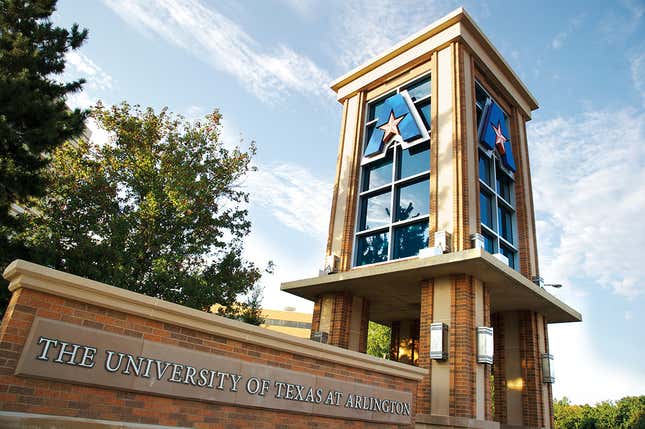
With their uninspired 13-16 record, many would pass on watching UT Arlington’s men’s basketball team. But for those who have been watching, they’ve been treated to more than just hoops.
In the days leading up to February, Matt McGann, the team’s video coordinator, decided to capitalize on the team’s elevated profile in order to raise awareness about the importance of Black History Month. So on Feb. 1, in a game against the University of Louisiana Monroe, the Mavericks took the court rocking t-shirts celebrating black historical figures.
“I really attacked it like, ‘What’s the message that UTA basketball wants to provide?’” McGann told the Shorthorn. “We want to educate, we want to inform. We want to tell people about what they might not know about.”
From familiar names like civil rights icon Rosa Parks to perhaps lesser-known ones like Patrice Lumumba, the Democratic Republic of the Congo’s first Prime Minister, each member of the team, including coaches and support staff, either selected a historical black figure themself or were assigned one to represent.
According to the Shorthorn, here’s what they look like:
The black T-shirts feature two gold bars across the chest. The top bar reads “Ask Me About,” with the second bar changing depending on who each member of the team chose to represent.
Ask me about Rosa Parks.
Ask me about Barack Obama.
On the back, a Kobe Bryant quote reads, “The most important thing is to try and inspire people so that they can be great in whatever they want to do.”
The shirts also provide each team member with an opportunity to expand their own knowledge. Junior guard Davis Steelman chose Nelson Mandela after visiting cultural landmarks like the Nelson Mandela Museum, the Apartheid Museum and Mandela’s home in South Africa.
“I think a lot of people didn’t really know about Nelson Mandela and the whole apartheid situation,” Steelman said. “[My presentation] was a little longer, I think, than a lot of other people’s, but I already knew about it.”
Freshman guard Sam Griffin chose Nipsey Hussle because of his entrepreneurial spirit and commitment to empowering black communities through unity.
“It translates to the court,” Griffin said. “As a team, you have to be as one. We can’t worry about whatever the outsiders have to say. We just have to stay together.”
And with the campus buzzing about the shirts—and publications like ours writing about them—it sounds like McGann has accomplished his mission.
“[It’s] about educating younger people, older people on our history and how we can be better from it, but also embrace and admire the people who paved the way for us,” McGann said.

